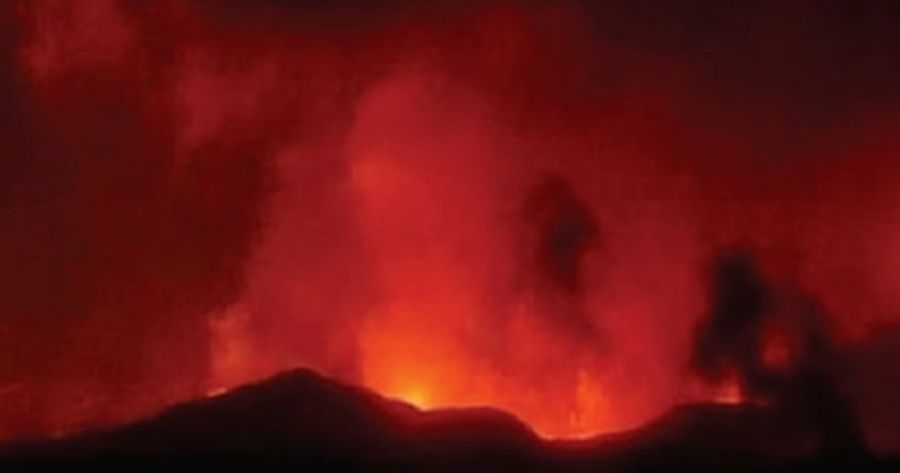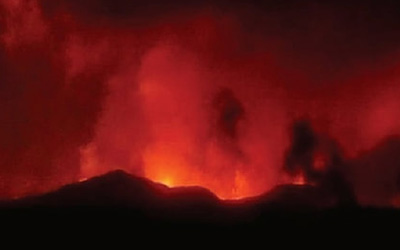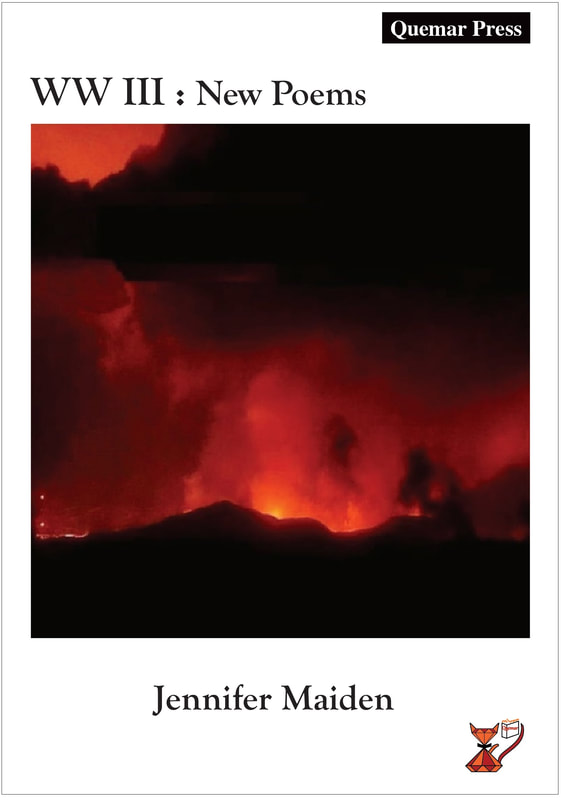
- Free Article: No
- Contents Category: Poetry
- Review Article: Yes
- Article Title: ‘Patient for human eyes’
- Article Subtitle: The maverick poetry of Jennifer Maiden
- Online Only: No
- Custom Highlight Text:
It is worth noting that Jennifer Maiden, along with the present reviewer, seems to be one of the few Australian poets born in the 1940s who is still writing. Each of us has to be careful now (as Peter Goldsworthy wrote long ago) that we are not ‘Carving this same face / out of soap, each morning / slightly less perfectly’.
- Featured Image (400px * 250px):

- Alt Tag (Featured Image): Geoff Page reviews ‘WWIII: New poems’ by Jennifer Maiden
- Book 1 Title: WWIII
- Book 1 Subtitle: New poems
- Book 1 Biblio: Quemar Press, $19 pb, 76 pp
- Book 1 Cover Small (400 x 600):

- Book 1 Cover (800 x 1200):

The main way she has of doing this, but not the only one, is via the continuing adventures of George Jeffreys and his girlfriend, Clare, who first appeared in Maiden’s collection Friendly Fire in 2005 and have resurfaced in all her books since. Clare, it is important to remember, as a nine-year-old, murdered all her younger siblings. Her partner, George Jeffreys, a lineal descendant of his namesake, the hanging judge at the Monmouth Assizes, is also, like her, a human rights investigator.
Another of Maiden’s often-used strategies is to have a notable politician of the left ‘wake up’ beside his or her famous mentor e.g. Kevin Rudd beside Dietrich Bonhoeffer or Hillary Clinton beside Eleanor Roosevelt. The ensuing conversations are always morally bracing and politically illuminating.
A short but indicative sample of this can be found in her poem ‘The Harbour and the Sea’, which begins: ‘Tom Uren woke up in an empty clifftop house on the Central Coast / surrounded by windows full of ocean and sometimes rainforest.’ The poem’s protagonist is thus reminded of ‘his own small house on the harbour, created by an architect / especially for him, the labour often in kind and the cost / at first carried by a tenant. He rented all of the top / while Uren lived in the basement.’
As readers begin to wonder why a Labor icon such as Uren is living by the harbour or visiting a big house with ‘windows full of ocean’, they are reminded (without warning) that Australia has been treated by the United States ‘not, as Keating warned, as the 51st state but worse, / to be used for a leech like Ukraine and spat out’. There can be no justification for footnotes in poetry, but most of us will feel the absence of one here. I don’t imagine that Volodymyr Zelenskyy considers himself a ‘leech’, even if the possibility of being ‘spat out’ is, at the time of writing, looking increasingly likely. Luckily, and typically, Maiden does find her way back to the original theme and finishes with Uren sitting down ‘in the house’ and waiting ‘for its guest, although he knew it was already Anthony’s purchase’.
As can be sensed here, Maiden’s poetry is never without risk, perhaps increasingly so. Not all her readers will remember Tom Uren or his place in the Labor pantheon. Many more will be disinclined to see Ukraine’s existential struggle against Putin as ‘leech-like’, though it is clearly weakening him. Still others of Maiden’s readers may have had a few days gap in their media, or social media, attention and thus not have registered the short-lived scandal about the Labor PM’s expensive Central Coast real estate purchase.
Further examples can be seen in ‘Conscription’, where Maiden again employs a somewhat scatter-gun approach. ‘There are many forms of conscription, not just the one / hoped for by any neocon in Australia. There was the plan / to provoke Russia irresistibly in Ukraine, and again / the teared up tiered up incitements against Iran, / against the patient streets and hills of Lebanon, / or by the latest German warship cruising one ocean / too close to China. Conscription has never just been / of the enemy into battle but also of the pawn / country which proxies for the master.’
As in earlier books in the series, Maiden also includes ‘stand-alone’ poems which make their contribution in a less direct way. One of these, towards the end, is ‘Comet C/2023 A3 (Tsuchinshan-ATLAS’, which ‘pulls back’ to take a more cosmic view of what has preoccupied Maiden in the earlier poems. ‘I didn’t expect what it was: / a brilliant bauble for a Christmas tree, bright points down either edge / descending slowly to the western mountains, as ancient as ice / but as visually accommodating as some new toy in the marketplace / of comet memory.’ Considering the content of most of the book’s poems, it is something of a relief when the poet personifies the comet directly, concluding: ‘you are as innocent as an animal thriving on being admired. / You have 80,000 years to circle and need no apotheosis, / a luxurious long comet holding its place in its orbit, impatient / and patient for human eyes.’
On WWIII’s back cover the late John Tranter declares that ‘[h]er name will be remembered in a 100 year’s time’. To some this might seem extravagant, but to those interested in international politics and moral complexity (and, sadly, the subset of them with the patience for poetry) Jennifer Maiden’s books since Friendly Fire will long continue to be essential reading.


Comments powered by CComment